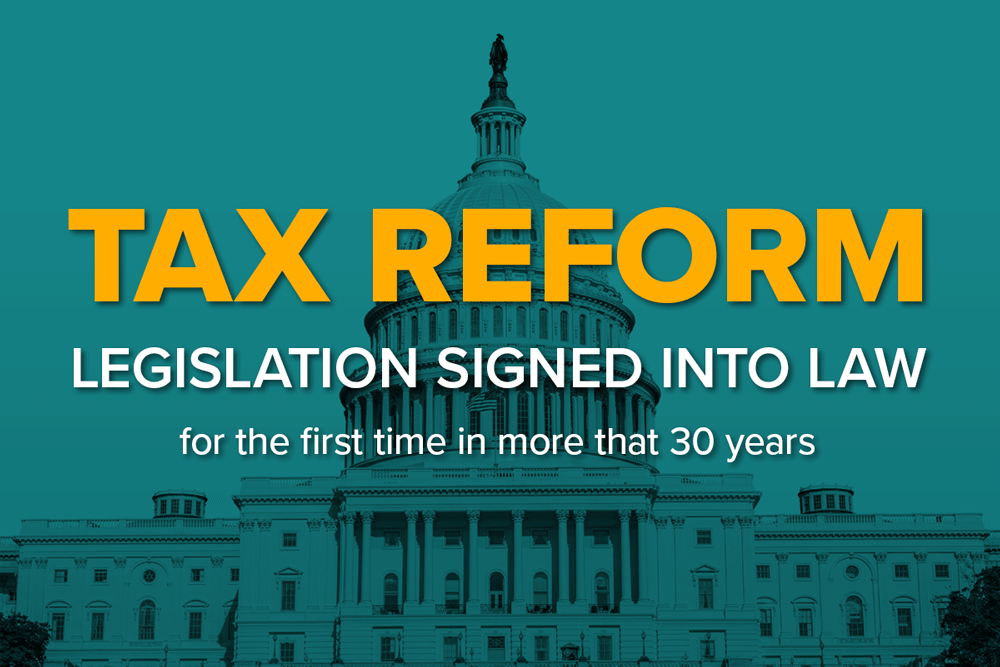Published
January 08, 2018
On New Year’s Day, the American people awoke to a new tax code and a brighter economic future. Increased business optimism, higher wages, and holiday bonuses were among the immediate effects of the tax reform legislation signed into law on December 22. But the greatest impact will become clear over the long term: a stronger, more innovative, and faster growing American economy.
In the more than 30 years since Congress last reformed the tax code, the economy has transformed dramatically with a greater emphasis on global commerce and digital technologies. Our outdated tax laws were a drag on our ability to innovate and adapt to these changes. Businesses were subjected to some of the highest tax rates in the developed world, were punished with double taxation when they participated in the global economy, and were unable to expense much of the investment needed to grow and innovate. All of that ended with this much-needed reform.
The U.S. Chamber of Commerce fought for years to accomplish many of the changes President Trump signed into law last month. While the final bill isn’t perfect, it represents the kind of bold and forward-looking reform we need on both the individual and business side of the tax code. It cuts rates for businesses of all kinds, allows for full expensing of investments, and establishes an internationally competitive tax system.
What does this mean for the big picture? It means growth: in the short term and long term. In the short term, with more cash in businesses’ coffers and more hope for the future, many companies are taking immediate and extraordinary steps to benefit workers. Some, including AT&T and Sinclair Broadcast Group, announced generous bonuses to thousands of employees. Others, such as Wells Fargo and Washington Federal, announced permanent raises. And others, such as Boeing, pledged investments in their communities, workplaces, or workforces.
Tax reform’s greatest impact goes far beyond these immediate steps, manifesting itself in more business investment, increased capacity, better jobs, rising wages, and a more competitive and successful American economy. The Chamber was proud to lead the business community’s efforts to overcome the doubters and pass tax reform. We worked with lawmakers, coordinated with state and local chambers around the country, ran advertisements, and much more.
It is our sincere hope and firm expectation that this new year and new tax code will bring success and prosperity to all Americans—from entrepreneurs to workers to our great global competitors to the small businesses that form the bedrock of their communities.
About the author

Thomas J. Donohue
Thomas J. Donohue is advisor and former chief executive officer of the U.S. Chamber of Commerce.





